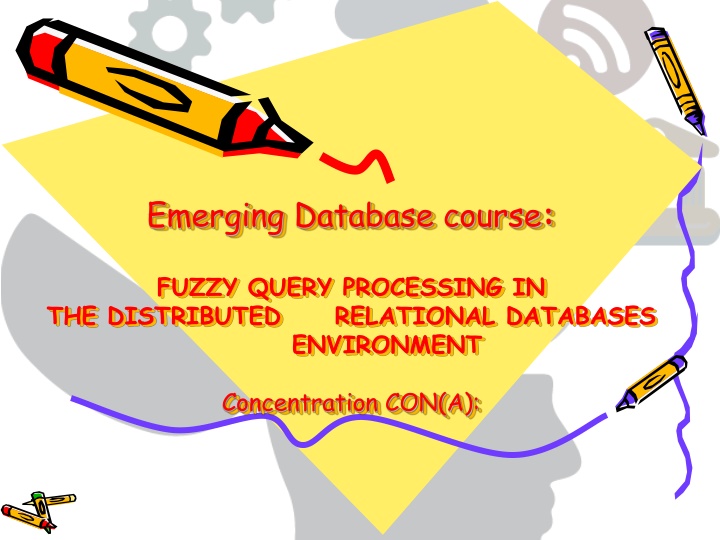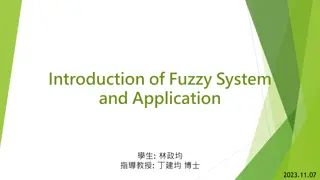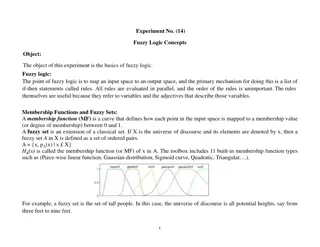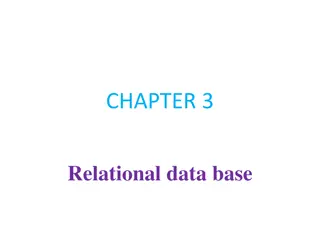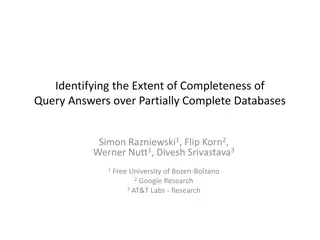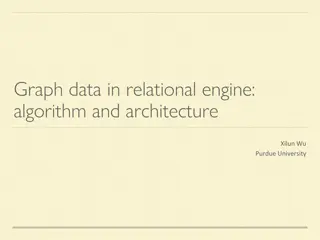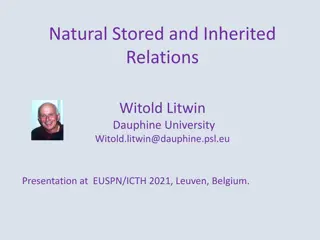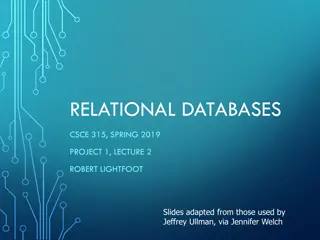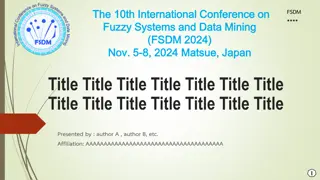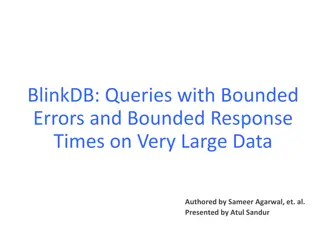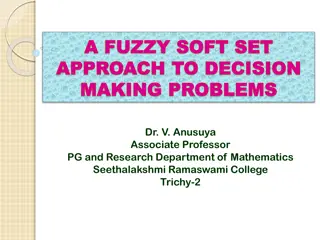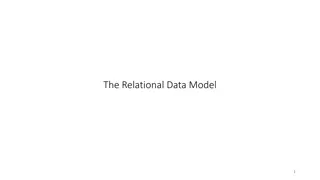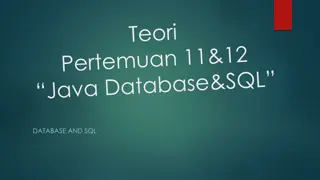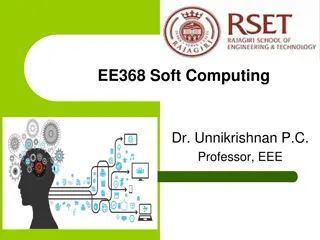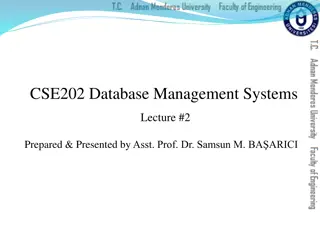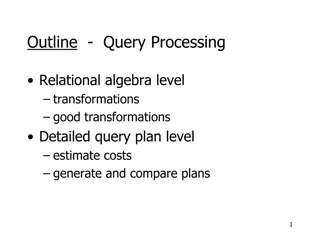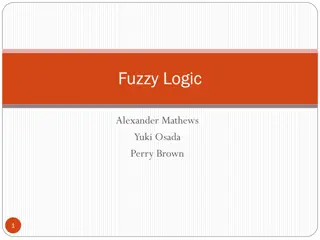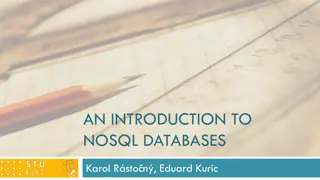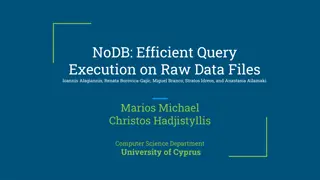Fuzzy Query Processing in Distributed Relational Databases
One of the key applications of fuzzy sets is in computational linguistics, where linguistic variables and fuzzy terms play a crucial role in approximate reasoning. This course explores the concept of linguistic variables, fuzzy terms, membership functions, linguistic hedges, and operations on fuzzy sets in the context of distributed relational databases. Learn how fuzzy query processing can enhance query results in a distributed environment.
Uploaded on Feb 28, 2025 | 1 Views
Download Presentation

Please find below an Image/Link to download the presentation.
The content on the website is provided AS IS for your information and personal use only. It may not be sold, licensed, or shared on other websites without obtaining consent from the author.If you encounter any issues during the download, it is possible that the publisher has removed the file from their server.
You are allowed to download the files provided on this website for personal or commercial use, subject to the condition that they are used lawfully. All files are the property of their respective owners.
The content on the website is provided AS IS for your information and personal use only. It may not be sold, licensed, or shared on other websites without obtaining consent from the author.
E N D
Presentation Transcript
Emerging Database course: FUZZY QUERY PROCESSING IN THE DISTRIBUTED ENVIRONMENT RELATIONAL DATABASES Concentration CON(A):
One of the most important applications of fuzzy sets is the computational linguistics. Zadeh proposed the concept of a linguistic variable and its application to approximate reasoning. A linguistic variable is a variable whose values are linguistic terms. For example, in natural language, we use "old" or "young" to describe someone's age. Thus, we can say that "age" is a linguistic variable. In this case, the words, "old" and "young" are called fuzzy terms. The meaning of a fuzzy term is subjectively defined, and it de pends on the problem domain. We can use a fuzzy membership function to represent a fuzzy term. A linguistic hedge can perform a modification on a fuzzy term. It modifies the meaning of a fuzzy set. For example, "very" and "slightly" are the linguistic hedges. After we add "very" before the fuzzy term "young," it becomes a composite fuzzy term "very young." If a fuzzy term contains an "AND" or "OR" connector, then it is called a compound fuzzy term.
There are some commonly used operations on fuzzy sets. Assume that A is a fuzzy set of the universe of discourse U and J.LA is the membership function of the fuzzy set A, then Concentration CON(A): This figure 1illustrates the concentration operation. This operator can be used to approximate the effect of the linguistic modifier "very." That is, for any fuzzy set A, .
REFERENCES Timon C.Du., Emerging Database System Architectures Bochmann, G. Concepts for Distributed Systems Design Capron, H. L. Computers: Tools for an Information Age
